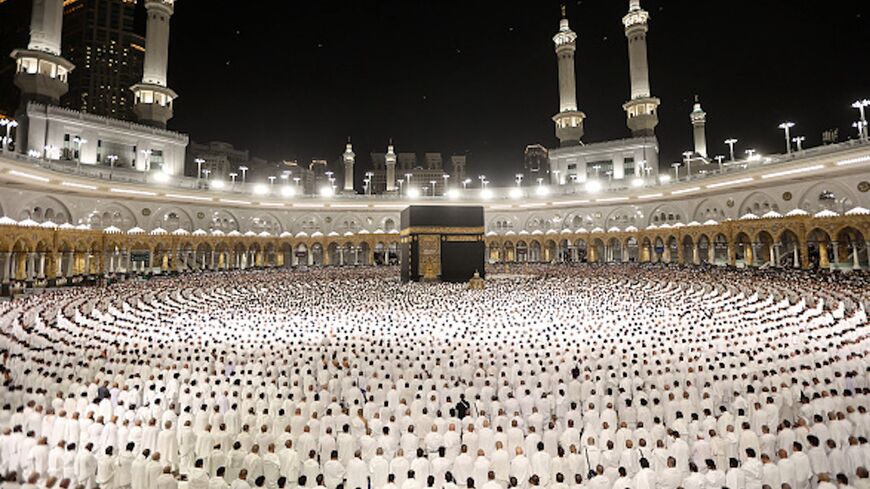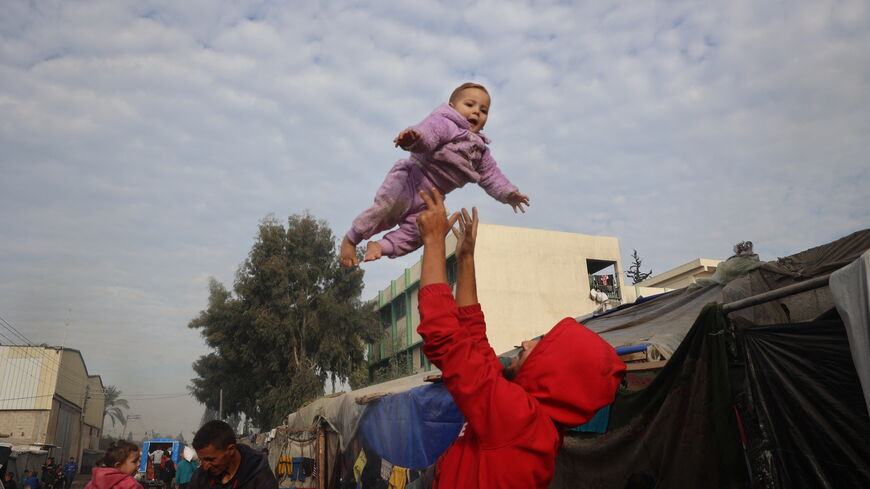Muslims across Middle East welcome Ramadan despite war, inflation
Amid fragile ceasefires in Gaza and Lebanon and shifting dynamics for Iran, Syria and others, the region is preparing for the Islamic holy month of Ramadan.

Despite the dark specter of wars and economic struggles, Muslims across the Middle East are preparing for the holy month of Ramadan, set to begin on Friday evening.
Ramadan is the ninth month of the Islamic calendar and one of the most sacred for Muslims, as it marks the period in which the first verses of the Quran were revealed to the Islamic Prophet Muhammad.
From the evening of Friday, Feb. 28, to Saturday, March 29 — and in some places March 1 to March 29 — those observing Ramadan will fast between dawn and sunset.
This year, Ramadan comes at a trying time for the region, which is recovering from Israel’s wars in Gaza and in Lebanon, as well as major shifts in regional dynamics, with Iran weakened and Syria’s government upended.
Gaza to Cairo
Large parts of the region has seen a tumultuous year leading up to Ramadan. After a 15-month-long war been Israel and Hamas in Gaza, Gazans are preparing for the holy month amid rubble and with little means to celebrate. According to Gaza’s Government Media Office, around 1.5 million Palestinians are without a home or shelter. The first phase of the ceasefire between Hamas and Israel is set to end on Saturday, March 1, yet signs point to the first phase being extended. Gazans are hoping that the ceasefire will be extended and that Israeli bombardment would not resume during Ramadan.
Meanwhile, in the occupied West Bank, multiple months of Israeli military operations that escalated on Jan. 21 have displaced more than 40,000 Palestinians over the past month, according to a United Nations estimate this week. On Friday, local sources told Al-Jazeera that new Israeli military reinforcements have been sent to the Tulkarm refugee camp in the northern West Bank.
Yet Palestinians will celebrate Ramadan nonetheless, with many citizens stocking up on food from local markets and decorating Gaza’s rubble-covered streets.
Palestinian news agency WAFA reported today that the grand mufti of Jerusalem and Palestine, Mohammad Hussein, declared that the Muslim holy month would begin Saturday. The Palestinian Authority released a statement saying work will begin at 9:00 a.m. and end at 2:00 p.m. to accommodate those observing Ramadan.
In Syria, despite an air of cautious optimism under its new leadership, the population is also grappling with the realities of its economic straits, infrastructure loss and recent moves by the Israeli military, which, on late Tuesday, struck several military targets near Damascus.
According to Syrian newspaper Enab Baladi, the average cost of an iftar — the post-sundown meal during Ramadan — for a small family is estimated at around 150,000 Syrian pounds, just over $10. But amid a cash crunch, Syria’s new government has imposed strict cash-withdrawal limits at Syrian banks, amounting to just 200,000 Syrian pounds, or $15 a day.
The grand mufti of Lebanon announced on Friday that Ramadan would begin on March 1. The country, which is experiencing a significant political transition and is in the midst of a fragile ceasefire with Israel, hopes for Ramadan to be a period of calm. Despite Israeli troops remaining in five locations in Lebanon, just last week, Saudi news channel Al Hadath reported that Lebanon and Israel will extend their ceasefire agreement until after the holy month. These reports have not been confirmed.
Gulf
Across the Gulf, a region which has seen far more stability than the rest of the region over the past year, preparations for Ramadan are well underway. In Saudi Arabia, a country which contains two of Islam’s holiest sites, Mecca and Medina, the government has issued safety guidelines for those making a pilgrimage to the country.
Interestingly, the United Arab Emirates, in which Ramadan will start on March 1, for the first time used drones to spot the crescent moon — which marks the start of Ramadan. The AI-powered drones, according to UAE news agency WAM, were used in addition to “traditional naked-eye sighting accounts.”
Earlier this month in Iraq, the Ministry of Trade announced measures to limit rising food costs and to allow low-income families access to goods ahead of Ramadan. The country is looking ensure a stable month during a year in which inflation has presented major challenges to its population.
Turkey
In Turkey, bazaars have been buzzing with people preparing for the holy month, which will end with a national celebration of Ramazan Bayrami, sometimes called Seker Bayrami, a three-day celebration marking the end of Ramadan.
Like other countries' citizens across the region, however, Turkish citizens are facing high food costs. While the country’s inflation rate — an issue that has plagued Turkey over the past several years — dropped to 42% in January, food costs ahead of the holiday rose. Pita, a staple food during Ramadan, increased by roughly 33% ahead of the holy month.
North Africa
As Ramadan approaches, several North African countries are implementing measures to stabilize markets and ensure a steady supply of goods. In Egypt, marketplaces have sprung up particularly in urban centers, offering substantial discounts on Ramadan essentials. And in Libya, the Ministry of Economy and Trade introduced policies to stabilize food supplies ahead of the holiday.
Meanwhile, in Morocco, the country returned to Greenwich Mean Time (GMT) on Feb. 23, an annual tradition since 2018 to accommodate the holiday.
In Sudan, Ramadan will offer little respite from the ongoing civil war. In the country’s Blue Nile State, a curfew will be imposed from 10:00 p.m. to 5:00 a.m. throughout the month because of recent attacks by the Rapid Support Forces, according to the Sudan News Agency (SUNA).
Yemen
Yemen enters Ramadan amid a severe humanitarian crisis marked by a historic collapse of its currency and record levels of hunger among its population, with the World Food Program and other NGOs warning that the country is on the precipice of acute famine. Adding to this, the Yemeni rial has plummeted in value, leaving many unable to meet even basic needs. A recent UN report shows that wheat prices have surged by over 30% this year.
Iran
As Ramadan approaches, Iran is taking significant steps to manage domestic food prices. In an effort to control soaring costs, the Iranian Agriculture Ministry has imposed a ban on the export of certain crops, including oranges and apples. The measure is meant to ensure local needs are met, particularly ahead of the holy month. Plus, in response to the increased number of visitors expected during the holiday season, the Iranian government has extended visiting hours for historical sites and cultural landmarks.
This year, Iran will experience the convergence of two major events: Ramadan and the beginning Nowruz, the Iranian New Year, which will overlap. Nowruz is a time of national celebration marked by family gatherings, feasts and cultural rituals.










